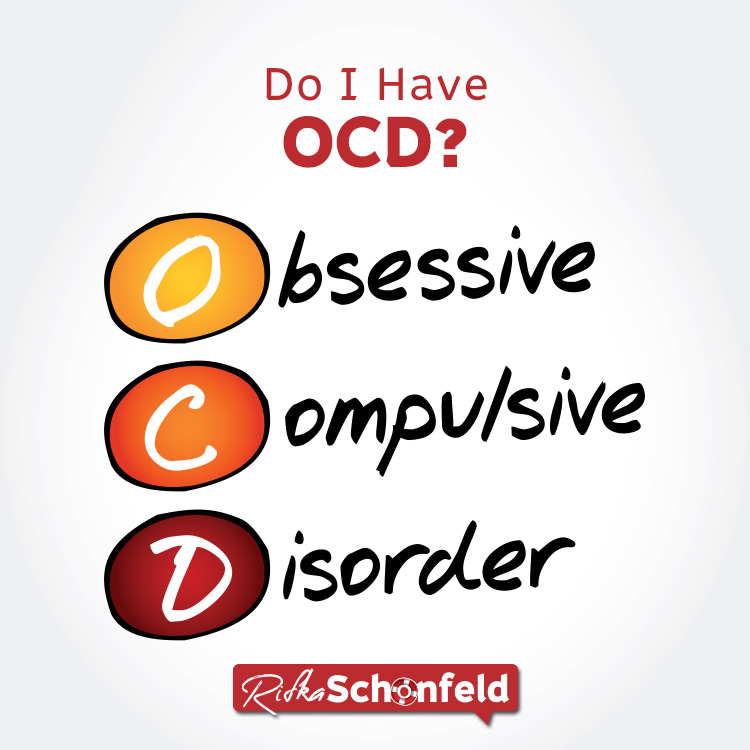Do I Have OCD?!
- rifkaschonfeld
- June 12, 2019
- 0 Comments

How Do You Know if You Have OCD?
Q: How do I know if I have OCD?
A: Everyone of us knows what it feels like to be anxious or apprehensive: the night before a big test, going on a shidduch, or when preparing for Yom Kippur. So, how do you distinguish that normal anxiety from Obsessive Compulsive Disorder (OCD)?
The World Health Organization estimates that around 2.5% of the world’s population is affected by OCD, an anxiety disorder, which ranges from children to senior citizens. Evidence is strong that OCD tends to run in families. Of course, having a genetic tendency for OCD does not mean people will develop OCD, but it means there is a stronger chance they might.
Here are different areas where obsessive-compulsive thoughts and behaviors may be concentrated:
- Washing and cleaning: People who consistently wash and clean may have a fear of getting contaminated or spreading contamination. To offset this, someone with OCD might engage in excessive showering and washing in order to kill germs. Often, this can lead to extremely dry skin that cracks and bleeds.
- Hoarding: People may resist throwing out objects because they believe the item might have a use in the future. At times, this can mean saving meaningless scraps of paper or souvenir baseball caps from years ago.
- Checking: Before going to sleep, people with OCD will frequently check and recheck the locks on doors and window. Prior to leaving the house, they will ensure that the stove is off, sometimes returning to confirm several times.
Diagnosis
If someone you know shows signs of OCD, talk to a health care professional.
Treatment
Once diagnosed, the most successful treatment helps people change their thoughts and feelings by first changing behavior. Often, it involves exposing people to their fears in order for them to recognize that no disastrous outcomes will occur, thus eventually decreasing their anxiety. Over time, the affected person gains confidence that he or she can fight OCD. They learn that giving into Obsessive Compulsive Disorder does not make the worries go away. An important note, though, is that this method of treatment should be provided by a professional and not simply attempted at home.
The good news is that with increased awareness, OCD is treatable and surmountable. The first step is recognizing the fear – then you can learn how to fight it.



